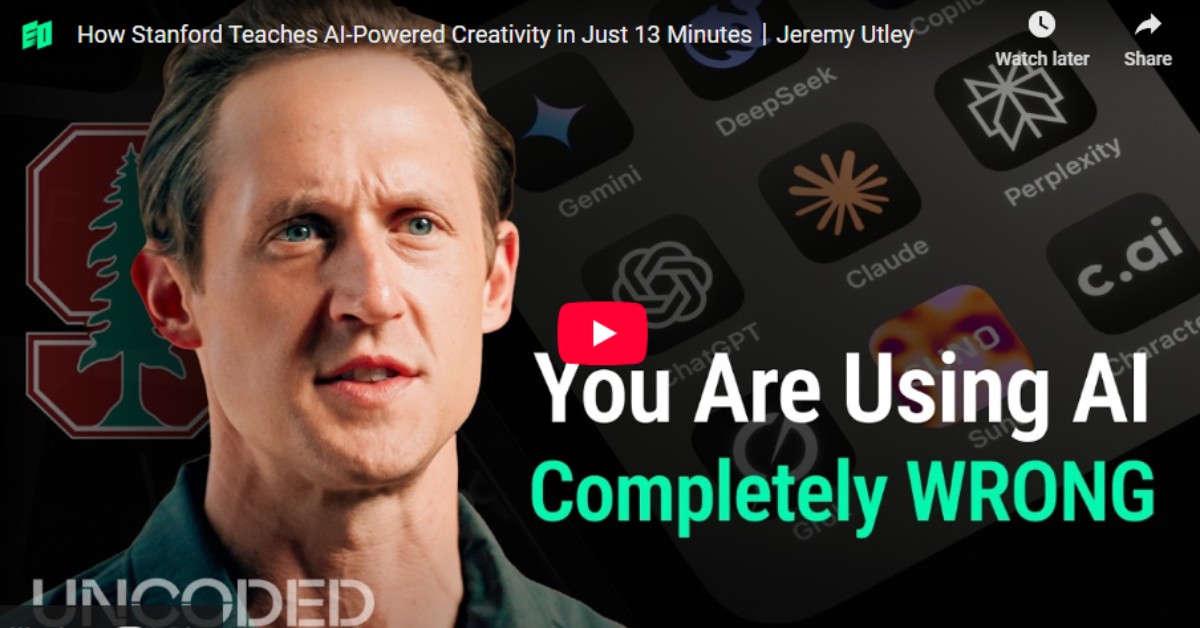Managing neurodivergent disabilities while running complex community projects forced me to develop what I now call “collaborative intelligence.” When your individual capacity is variable, you learn to work with systems that can think alongside you rather than just execute tasks. I had to figure out how to coach AI to understand my context and strategic intent so it could help me think through coordination challenges when my brain fog made linear analysis impossible.
Turns out Stanford’s D-school has been studying exactly this approach. Professor Jeremy Utley’s research shows that practitioners who treat AI like a teammate instead of a tool get fundamentally different results. His example of one National Park Service employee saving 7000 days of labor across 430 parks demonstrates what becomes possible when you shift from asking AI questions to letting it ask you questions.
Watch the Stanford validation here:
This is exactly what I discovered through necessity – and it’s the foundation for how collaborative intelligence can transform regenerative strategy development when you design for variable capacity from the start.

